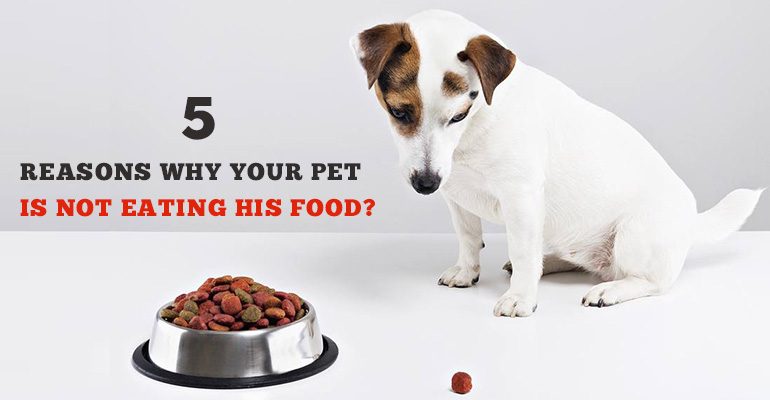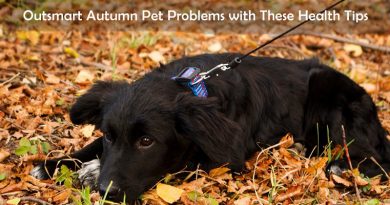5 Reasons Why Your Pet Is Not Eating His Food?
Are you worried about your pooch’s eating habits? Has he stopped eating? The reason for your dog not eating his food can be numerous. Loss of appetite or ‘anorexia’ in dogs can be indicative of some underlying problem, which a pet may be dealing with.
Under normal circumstances, a pet may avoid his meal for a day. However, if the pet is not eating his food for more than 24 hours, then it is indicative of any possible underlying problem.
The only option left here with a pet parent is to consult his vet immediately and get his pet treated.
Possible Reasons For Eating Disorders In Pets
Dental Disease
Check your pet’s mouth. Is he having sore gums or bleeding gums. If yes, then the pain he is experiencing in his mouth is resisting him to eat his food.
Drug Reaction
Putting your dog on vaccinations can cause some side effects including appetite loss.
Pain Due To Arthritis
A pet may find it difficult to eat when battling with a condition such as arthritis. The pain he experiences due to joint disorder or any other physical ailment can stop him from having his meal.
Current Medical Health Or Illness
The most obvious reason may be due to illness or any underlying medical condition. A pet suffering from cancer may develop symptoms, which resembles Anorexia in pets.
Behavioral Or Stress Related Factors
Your pet’s aversion to food has lot to do with the environment he is living in. For instance, some pets may develop a strong connection with their pet parents. The connection is so strong in some cases that if for some reason a pet parent is out for days then the pet in his absence may stop eating his food.
At the same time, any unfortunate incident happened in the family may lead to stressful condition for him. Thus, can be a reason for avoiding his food plate.
What To Do In Such A Scenario?
As a pet parent when you come across such situation, consult your vet immediately. If your dog has not eaten his food for 24 hours, then you should contact your vet at the earliest. Your vet will determine the root cause of the problem and treatment will be followed in the same direction.
Even after your pet has been treated and has returned back to normalcy, you must ensure that your pet lives in a very stress free environment. Spend adequate time with your pet. Play with him and create a happy environment for him in the house.




